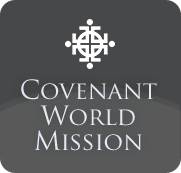Do we preachers really think the world is waiting to hear our poetry? Or perhaps, just perhaps, our work is to make the crumbs fly!
Next up was a lecture by Thomas Long, author of many books including Preaching as a Witness, the most widely used and loved preaching text book in the world. He spoke about Ecclesiastes, encouraging us to include it in our preaching schedules. Tom described how things have changed in society and people no longer intuitively know what is right and how we should live as disciples of Christ is this world. This has led to a renewed interest in texts of moral guidance, or something that we might call “wisdom literature”. This includes the beatitudes and many Pauline passages as well as James. But when dealing with this so called wisdom literature, we also need to remember the importance of “counter wisdom” that says, “yes, but…!” This is because conventional scriptural wisdom sometimes collapses in the face of innocent suffering. Why to the wicked prosper while the just and righteous are left to suffer?
Ecclesiastes is full of counter wisdom. And even within Ecclesiastes there is an ongoing argument between wisdom and the “yes, but…!” claims of counter wisdom. The good news is that in the end the preacher in Ecclesiastes doesn’t revert to cynicism as is sometimes read into the text. Instead, he commits to the chaos of life, confident that God is also committed to the chaos of life.
Thomas Long was followed by Barbara Lundblad, who encouraged us to give more attention to the Holy Spirit of Pentecost than just one Sunday of the year, just as we do with Advent, Christmas, Lent and Easter. She drew our attention to numerous passages in scripture where we are commanded to both “remember” and “forget”. For it is thru our remembering the acts of God that we are sustained, and yet it is only when we allow ourselves to forget the past and be freed of it that we open ourselves to the new and enlivening work of the Holy Spirit.
After lunch Thomas Long came back and preached from Luke 2:25-38. He drew a vivid picture of all the old people in this story; namely Simeon, followed by Anna, and both preceded by Zechariah and Elizabeth. Interestingly all the old people in Luke’s gospel are confined to the first 2 chapters and then are replaced by characters mostly in their twenties and thirties! He went on to describe the difference between “standing up for the faith” which is the default mode of young people, and “leaning forward, into the faith and letting go”, which is what the old people did. Most significantly, standing up for the faith requires you to believe you are right. Leaning forward, into the faith requires you to believe that there is a God! It was the old people who did the latter, and on Easter morning everything they had hoped for and believed on came to pass!
Following the sermon Rev. Hirano and I had the privilege of interviewing Thomas Long for an article in new Japanese magazine for pastors called Ministry. Dr. Long was great and we thoroughly enjoyed our time with him. Look for the interview to be published in the upcoming fall or winter issue.
This was another very rich day!
Stay tuned for Day 3!

